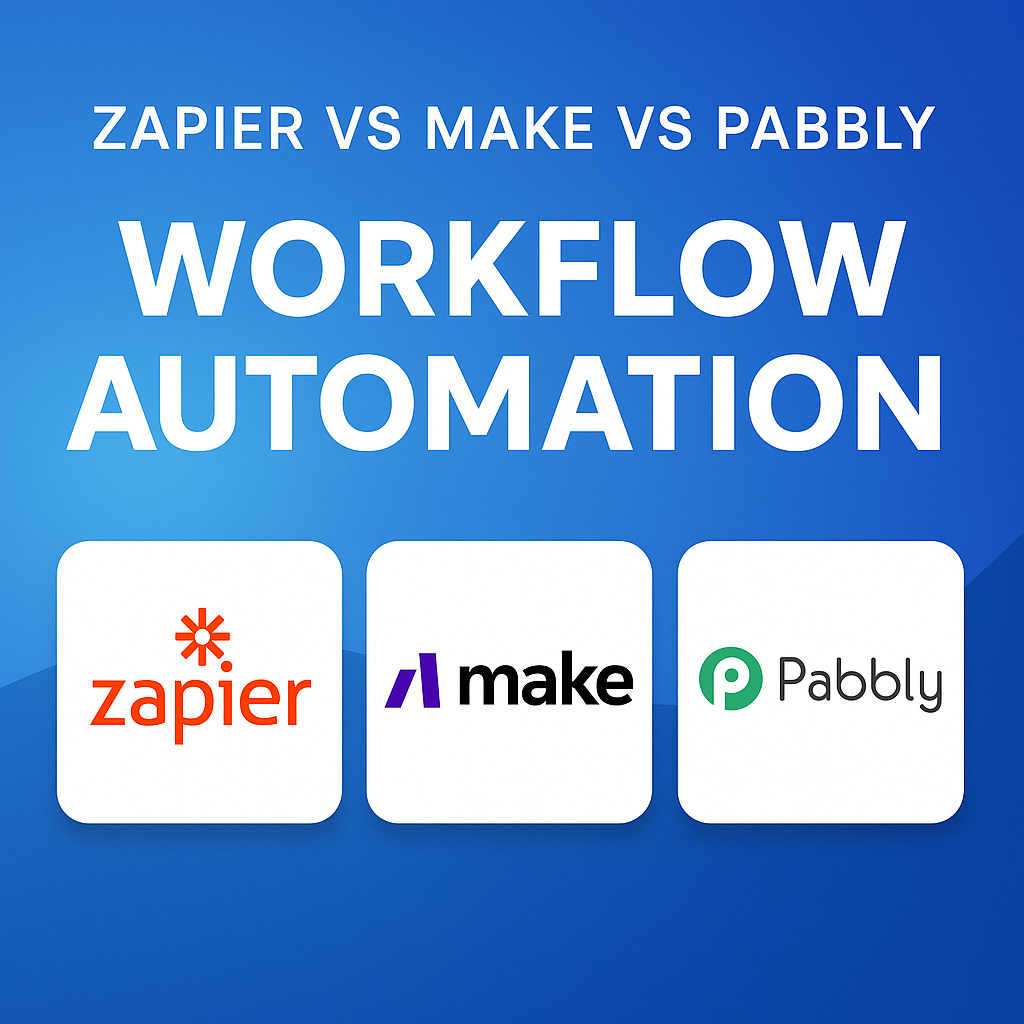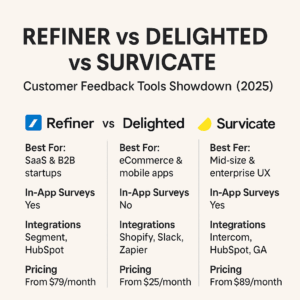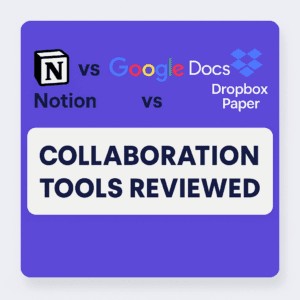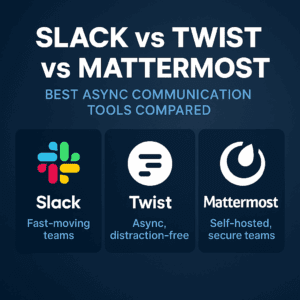Manual tasks slow businesses down. Whether you’re running a freelance business, agency, or SaaS startup — automating repetitive workflows is key to scaling without burnout.
In 2025, three platforms dominate the no-code automation space: Zapier, Make (formerly Integromat), and Pabbly Connect.
Each offers a way to connect your apps, automate processes, and save time — but they differ significantly in pricing, ease of use, and flexibility.
Here’s a detailed comparison of Zapier vs Make vs Pabbly, so you can choose the right automation tool for your business.
🔍 Quick Comparison Table
| Feature | Zapier | Make | Pabbly Connect |
|---|---|---|---|
| Best For | Beginners & SMBs | Visual builders & pros | Budget users & startups |
| UI/UX | Form-based | Drag-and-drop visual | Basic form-based |
| Apps Supported | 6,000+ | 1,500+ | 1,300+ |
| Multi-step Workflows | ✅ Yes | ✅ Yes | ✅ Yes |
| Conditional Logic | ✅ Yes (on paid) | ✅ Yes | ✅ Yes |
| Webhooks & APIs | ✅ Yes | ✅ Yes | ✅ Yes |
| Support | Email & Community | Chat + Docs | Email Support |
| Free Plan | Yes (limited) | Yes (1,000 ops/month) | Yes (100 tasks/month) |
| Paid Starts At | $19.99/month | $9/month | $19/month |
✅ 1. Zapier
Overview:
Zapier is the most popular no-code automation platform, supporting thousands of app integrations. It’s known for its simplicity and reliability.
Best For:
Freelancers, solopreneurs, and growing teams that want fast, easy automation.
Key Features:
- 6,000+ app integrations
- Multi-step Zaps (workflows)
- Filters, delays, conditional paths
- Built-in email, SMS, and schedule triggers
- AI-powered Zap suggestions
Pros:
✔ Most beginner-friendly
✔ Huge app library
✔ Consistently stable
✔ Extensive templates and docs
Cons:
✖ Can get expensive as usage grows
✖ Limited on lower-tier plans
✖ No visual builder
Pricing:
- Free: 100 tasks/month
- Paid: Starts at $19.99/month
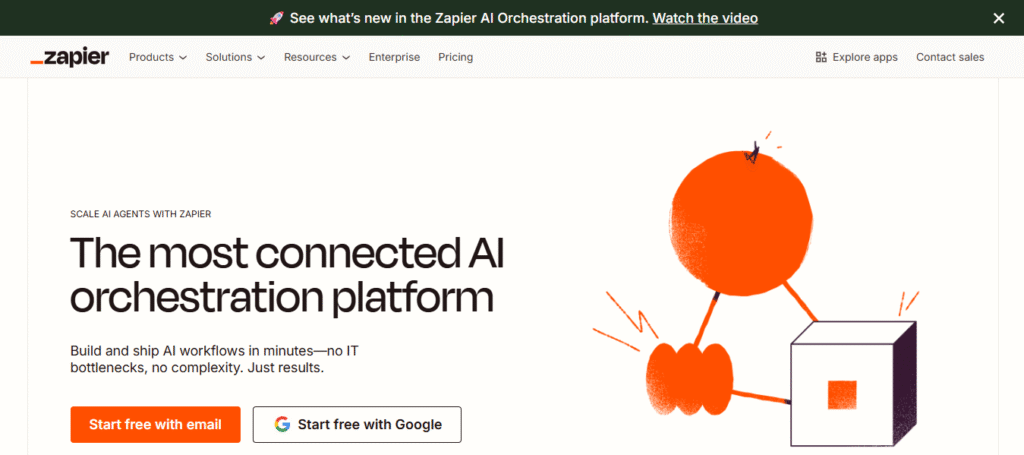
✅ 2. Make (formerly Integromat)
Overview:
Make is a powerful visual automation platform. It’s ideal for technical users who want granular control over workflows using a beautiful drag-and-drop interface.
Best For:
Agencies, power users, SaaS teams, and devs who want deep customization.
Key Features:
- Visual editor for workflows
- Advanced logic and routers
- Webhooks and API calls
- Data structure mapping
- Instant triggers for many apps
Pros:
✔ Super flexible + visual
✔ Great for complex workflows
✔ More operations per dollar than Zapier
✔ Powerful data manipulation
Cons:
✖ Steeper learning curve
✖ Less intuitive for beginners
Pricing:
- Free: 1,000 operations/month
- Paid: Starts at $9/month
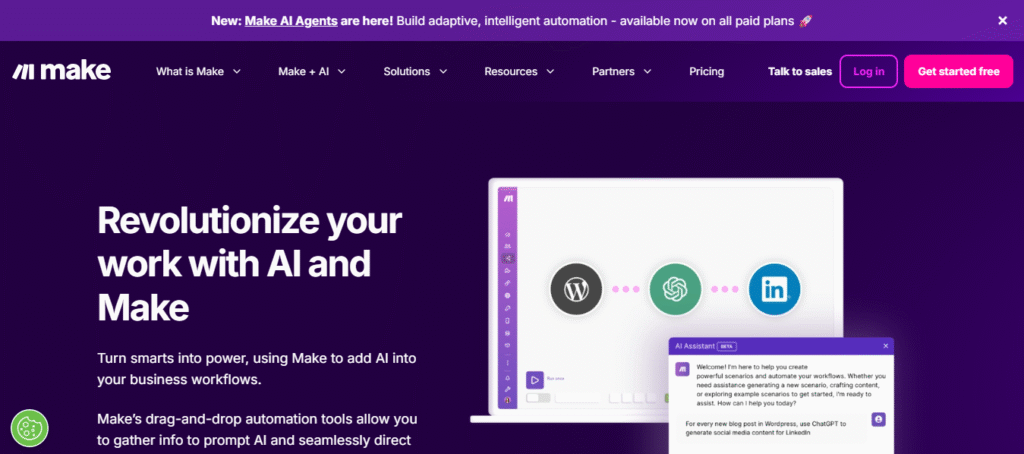
✅ 3. Pabbly Connect
Overview:
Pabbly Connect is an affordable Zapier alternative with lifetime deals, unlimited workflows (in most plans), and strong community support in India and globally.
Best For:
Startups, budget-conscious users, and early founders needing unlimited workflows.
Key Features:
- One-time lifetime plans
- API/Webhooks, routers, filters
- Schedule, delay, multi-step workflows
- Integrates with 1,300+ apps
Pros:
✔ One-time pricing available
✔ Affordable even for solo users
✔ Good for standard business automations
Cons:
✖ Smaller app library
✖ UI less polished
✖ Lacks visual builder like Make
Pricing:
- Free: 100 tasks/month
- Paid: Starts at $19/month
- One-time deals (Lifetime) available occasionally
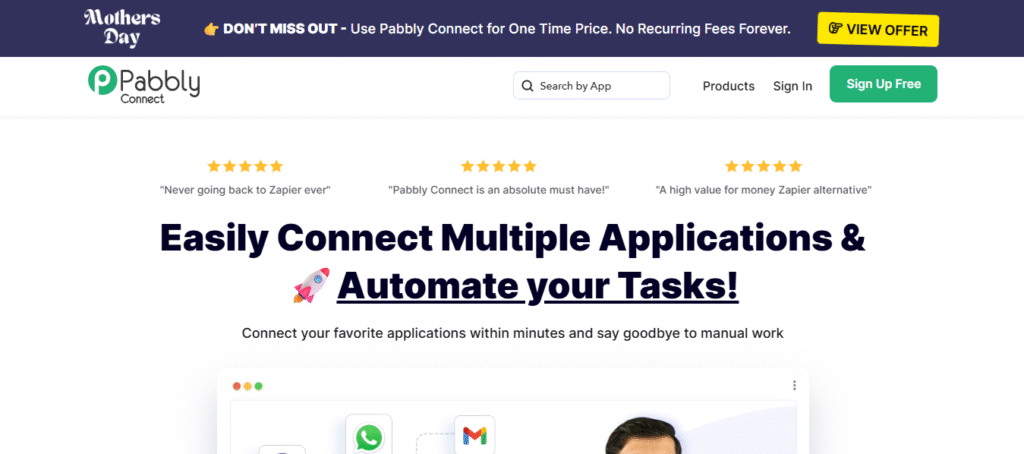
🏆 Which Automation Tool Wins?
| Use Case | Best Tool |
|---|---|
| Ease of Use | Zapier |
| Best for Visual Builders | Make |
| Budget-Friendly / Lifetime Deal | Pabbly |
| Complex Multi-App Workflows | Make |
| Best All-Around Starter Tool | Zapier |
| Best for Indian Freelancers | Pabbly |
Final Verdict
If you’re starting out and need quick plug-and-play automations — Zapier is your best bet.
If you want advanced workflows, complex logic, and visual flow design — go with Make.
If you’re on a tight budget or want to pay once and automate forever — Pabbly Connect offers incredible value.
Pro Tip: Start with your needs, not the hype. For 90% of users, all three tools can solve basic to advanced automation challenges — the best one is the one you’ll actually use consistently.
